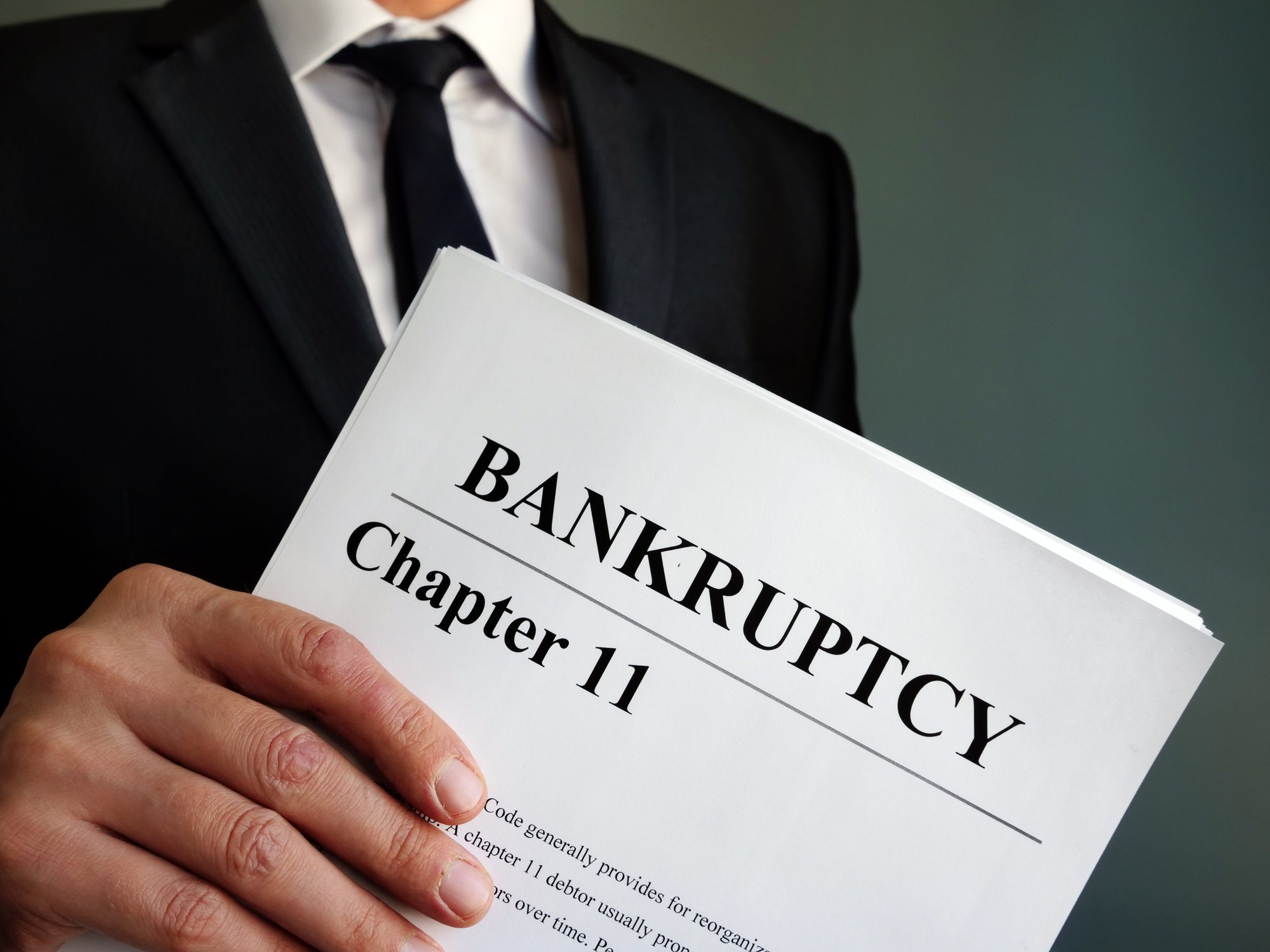Shares of Chesapeake Energy (CHK +0.00%) have been insanely volatile this week. The oil stock tripled in value on Monday, capping an epic run of nearly 450% since the start of June. Fueling that jaw-dropping rally was a monster rebound in crude oil prices, which gave speculators some hope that the beleaguered oil company might make it through this downturn in one piece.
However, Chesapeake's stock came crashing back to earth over the past two days, losing about three-quarters of its value. The culprit: a report by Bloomberg that Chesapeake Energy is preparing to file for bankruptcy protection. That news shouldn't have come as any surprise since Chesapeake warned of that likelihood less than a month ago.
The near certainty that Chesapeake will file for bankruptcy protection, which could come any day now, suggests that the stock could have more downside ahead. Here's why.

Image source: Getty Images.
The best-laid plans
When a company declares bankruptcy, the main objective is to restructure its burdensome debt load. In Chesapeake Energy's case, it currently has about $9 billion of outstanding debt, including roughly $300 million that matures this year. Chesapeake had initially hoped to continue walking the tight rope of managing its debt by selling $300 million to $500 million of assets this year so that it could repay its upcoming maturities. That would have bought it more time to continue addressing its lofty debt load.
Unfortunately, oil prices collapsed earlier this year, taking asset values down with it, upending this plan. With asset sales off the table and credit markets closed to Chesapeake given its precarious financial position, -- meaning refinancing is also not an option -- the company is running out of alternatives to address these upcoming maturities outside of bankruptcy.
Handing over a huge chunk of what's left
According to the Bloomberg report, Chesapeake would hand over control of the company to senior lenders as part of its bankruptcy restructuring plan. That means, at a minimum, it would give up more than half of its equity in exchange for debt relief. The most likely outcome would be to part with at least 95%, with the potential for it to relinquish full control, which would wipe out existing equity holders.
We have one recent example in the industry where existing shareholders will retain some equity in a restructured oil producer. Whiting Petroleum (WLL +0.00%) filed for bankruptcy in April after reaching an agreement with its bondholders on a restructuring plan. Whiting would exchange roughly $2.2 billion of debt for 97% of the equity in the reorganized company, meaning existing shareholders would keep about 3%. That's an enormous transfer of equity value, which will significantly dilute existing investors.
If Chesapeake's creditors agreed to a similar recapitalization plan, the company would issue a substantial amount of new stock to them in exchange for meaningful debt relief. That dilution level would make it nearly impossible for existing Chesapeake investors to earn a compelling return on their investment, barring an epic rebound in oil prices.
Chesapeake speculators are betting on a miracle
Anyone who bought or is considering buying shares of Chesapeake is gambling on the slight possibility that Chesapeake Energy avoids bankruptcy. In a dream scenario, Chesapeake might find a last-minute buyer willing to pay a compelling value for some of its assets, which would give it the cash to pay off a meaningful amount of its debt.
However, that seems highly unlikely. Prospective buyers know Chesapeake is in financial trouble and therefore aren't likely to offer anything near full-value for its assets, especially given all the uncertainty in the oil market. So it seems inevitable that Chesapeake will declare bankruptcy, most likely within the next month, since it has an interest payment due on June 15 that only comes with a 30-day grace period. That restructuring will probably wipe out most of its remaining equity, leaving existing investors without much chance of a recovery on their insane bet in this financially troubled oil stock.






